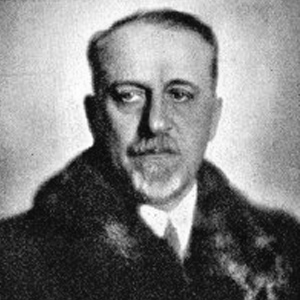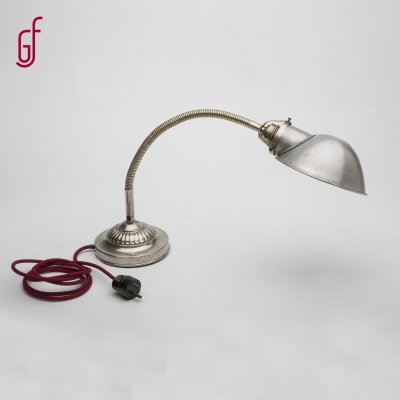- Functionalism
- Designers
- Franta Anýž (1876 - 1934)
Franta Anýž (1876 - 1934)

He was born in Nová Ves near Rokycany as the eldest of eight children of the metallurgist František Anýž and his wife Benigny, née Černá. He was baptized at the parish in Svatá Dobrotivá (today the local part of Zaječov). He trained as a modeler, former and chiseler of iron cast iron in the ironworks in Komárov near Hořovice. For his talent, he was recommended to study at the School of Arts and Crafts in Prague, where he studied from 1892 to 1899, first in the studio of Professors Celda Klouček, Anton Helméssen, Emanuel Kautsch, and then decorative metal objects with Emanuel Novák.
On a study trip to Germany and France, he visited mainly Nuremberg, Munich and the World Exhibition in Paris. In 1901, he married Pavlína Schnirchová, the niece of the sculptor Bohuslav Schnirch, who brought a substantial amount of money into the business and also participated in the artistic design of products, especially lighting fixtures. In the years 1896 - 1900 Anýž lived in Rokycany, where he ran his workshop and cooperated with the ironworks in Komárov during casting. In 1902, together with his classmate Prokop Nováček, he founded a new plant for the production of cast and wrought metal objects in Prague. In 1910 he bought land for his independent factory in Prague - Holešovice in U Průhonu Street 34. He built a hall with a foundry, workshops, lighting production, minting of medals, plaques and badges. In 1912 he added a family house. He had two sons, the older Jaroslav Anýž (* 1902) worked in his father's company, the younger František (* 1903) at first also. He published his early works in print on the school album Umprum. After 1918, the realization of sculptures and decorative objects according to foreign designs prevailed. From 1896 to 1913, Anýž was a member of the Mánes Association of Fine Artists. Anýž was drafted to the Russian front in 1915, and in captivity, among other diseases, he contracted malaria. He apparently suffered from Graves-Basedow's disease.
The factory and its plants were nationalized after World War II, and the Zukov plant was in operation until the 1970s.




